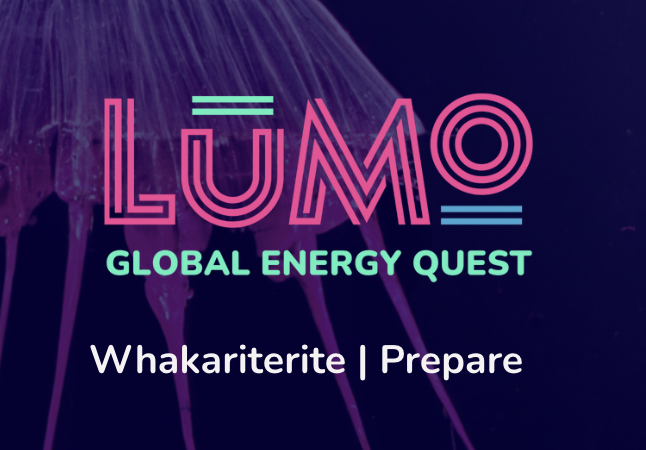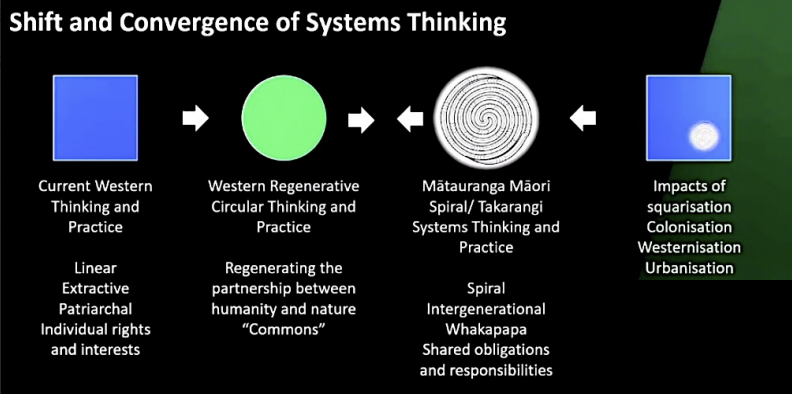The importance of engaging with Te Ao Māori, the Māori worldview, cannot be overstated today. For large and small organisations, understanding and embracing Māori perspectives is a matter of cultural sensitivity and a vital step towards reconciliation, equity, and sustainable development. In this blog post, we delve into one of our journeys as we navigate its engagement with Te Ao Māori, highlighting the challenges, the progress, and the lessons learned along the way. We've been part of the Lumo Global Energy Quest to ask the patai: How might Mātauranga Māori help us navigate our journey towards decarbonisation?

Where Are We Now?
The journey begins with an introspective look at the Alimentary's current engagement with Te Ao Māori. Meetings with local iwi, joint grant proposals, and ongoing Treaty training signal a commitment to understanding and respecting Māori perspectives. However, challenges such as varying levels of understanding among staff, breaching wai262, and misunderstandings of a kaumatua relationship with a hapu highlight the complexities of navigating this journey. Despite these challenges, Alimentary consciously strives to improve with initiatives such as essential te reo learning and developing whakapapa connections with hapu.
Why Does Engagement Matter?
Understanding why engagement with Te Ao Māori is crucial sets the foundation for meaningful collaboration. Māori share our worldviews regarding the spirituality of water, the alignment with the Hauora model of health in our wellbeing approach, and a joint commitment to environmental regulation, underscoring our respect for the interconnectedness of Māori perspectives with broader organisational goals. Moreover, acknowledging historical injustices and striving to restore equity to Māori communities further emphasises the importance of this mahi.
Who Drives Engagement?
Our founders primarily drive our engagement with Te Ao Māori, with support from key partners such as Ti Ati Awa via the Edmund Hillary Fellowship. While top-down leadership plays a significant role, grassroots support from indigenous communities lays the groundwork for authentic collaboration. Our whakapapa is grounded in Fravashi and Amesha Spenta, the Zoroastrian concept of a personal spirit and divine entities that provide insights into Māori concepts.
Supporting Engagement
Resources allocated to support engagement with Te Ao Māori include Treaty of Waitangi training, shares allocated to the voice of nature, and recognition of Te Tiriti in the company's founding constitution. These initiatives demonstrate a commitment to integrating Māori perspectives into our purpose venture fabric to uphold indigenous rights.
Extent of Engagement
While engagement efforts are widespread, we acknowledge the need for external support due to its small size and limited te reo proficiency. Initiatives such as offering koha, adapting pepeha, and spreading karakia reflect a commitment to learning and growth in understanding Te Ao Māori.
Measuring Success
Success in engagement with Te Ao Māori is not solely based on metrics but on the ability to work together towards shared goals. While scientific metrics provide valuable insights, the accurate measure of success lies in genuine collaboration and mutual respect.
Navigating Cultural Tax
The concept of cultural tax, the additional burden placed on indigenous communities to engage in cultural practices, is acknowledged as a challenge. By understanding and respecting the pressures Māori face in a kaitiakitanga role in response to RMA requests, Alimentary seeks to alleviate this burden and foster a more equitable partnership.

Credit: Rod Orum
Resolving Conflicts
Conflicts arising from differences in understanding or implementation of mātauranga are addressed through open communication and a willingness to learn. Leadership plays a crucial role in navigating these conflicts, with a focus on vulnerability and understanding.
Supporting Career Progression
Alimentary recognises the importance of manaaki and ensuring the hauora of pae ārahi and Māori kaitiaki. By creating specific roles, co-designed with iwi partners, and incorporating the Hauora model of health into its practices, the Alimentary aims to support its team members' holistic well-being and career progression.
Setting Boundaries and Expectations
Clear boundaries, expectations, and outcomes are negotiated with iwi partners, focusing on manaakitanga, kaitiakitanga, and collective agreement. Whānau involvement is essential in shaping these discussions and ensuring alignment with Māori values.
Conclusion
Engaging with Te Ao Māori is not just a checkbox on a list of corporate responsibilities; it's a journey of understanding, respect, and collaboration. By acknowledging the challenges, embracing the opportunities, and committing to genuine partnership, any organisation can pave the way for a more inclusive and equitable future. As our case study demonstrates, the path may be challenging, but the rewards of genuine collaboration are immeasurable.